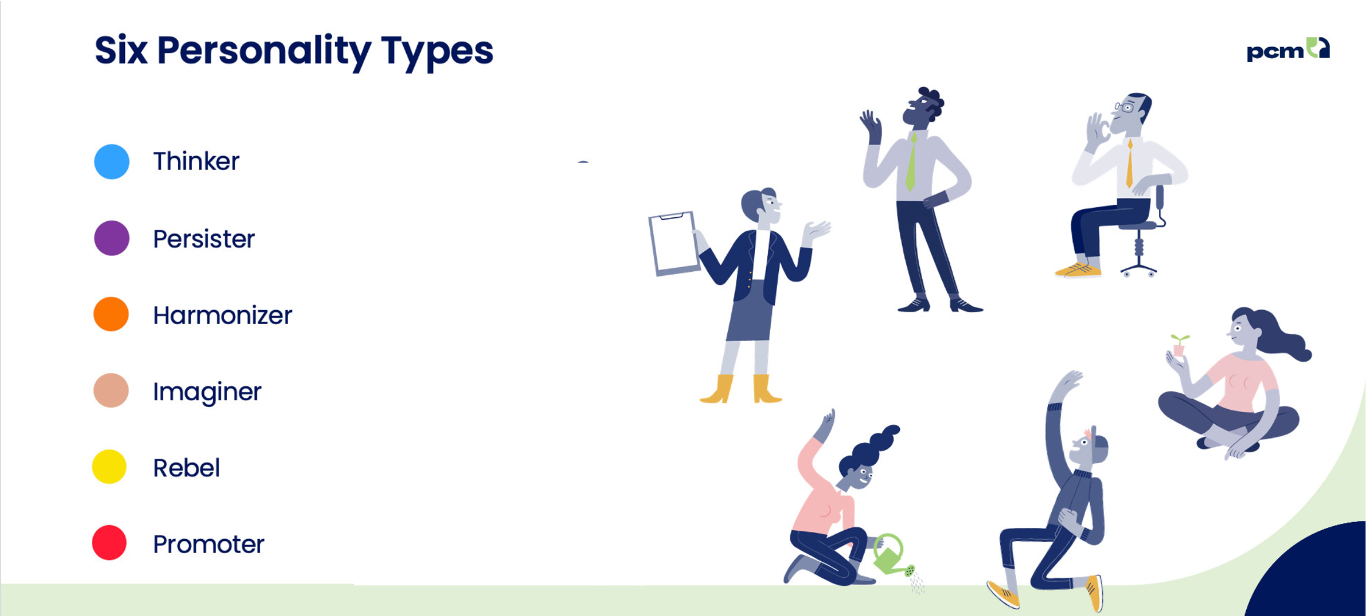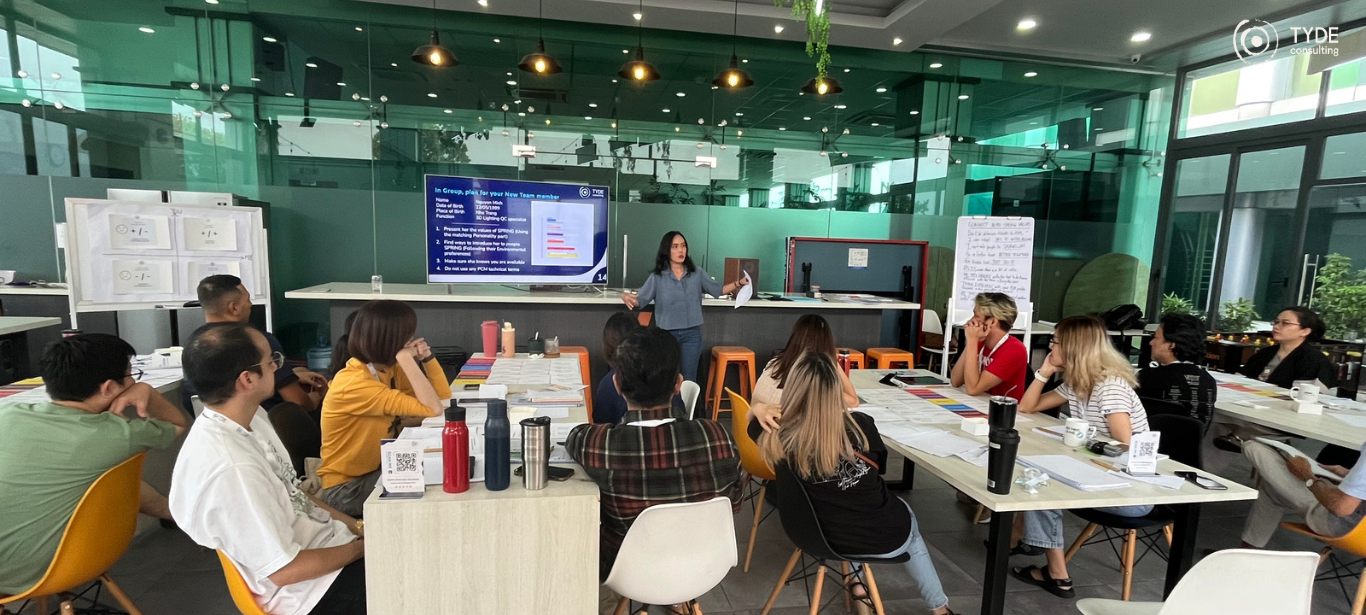As the ultimate goal of communication is to understand others, people are always looking for thousands of ways to read humans. What if we started by understanding ourselves first?
What is authenticity and why is it important at work?

To deepen our self-awareness, there are many tools in the market that people can use to better understand themselves and those they interact with. At TYDE, we are using The Process Communication Model® (PCM), which helps our clients spot miscommunication in seconds, reduce stress and increase connection. Especially, PCM can be used in everyday interactions, both casual and formal ones.
Why nobody talks about The process communication model?

While the Process Communication Model (PCM) has been used and validated in various fields, it may not be as well-known or widely talked about as some other communication and personality models. There could be several reasons for this:
- Limited awareness: PCM is relatively less known outside of certain industries and fields. It may not be as commonly used or taught in mainstream education or professional development programs.
- Availability of other models: There are numerous other communication and personality models available, such as Myers-Briggs Type Indicator (MBTI), DiSC, and Emotional Intelligence (EI), which may be more widely known or preferred by some individuals or organizations.
- Marketing and promotion: PCM may not have been promoted or marketed as extensively as some other models, which could contribute to its lower visibility and recognition.
However, PCM is a skillset, rather than a psychometric assessment. Despite these factors, PCM has been shown to be effective in improving communication, reducing conflicts, and enhancing teamwork in various settings. With its rigorous scientific foundation and proven track record, it is worth considering as a valuable tool for improving interpersonal communication and teamwork.
Why use Process Communication Model?

When it comes to the use of the Process Communication Model (PCM) compared to other personality assessments such as MBTI, and DiSC, here are a few key points to consider:
- PCM is a science-validated tool, which is used by NASA for astronaut selections. As a helpful tool to decode human behaviors, NASA was able to find the right people to complete the missions.
- PCM is practical and actionable: PCM is designed to be practical and actionable, providing specific communication strategies and techniques that individuals can use to improve their interpersonal communication and relationships. This focus on practical application can make PCM more relevant and useful for companies and their employees.
- PCM is adaptable and flexible: PCM can be used in various contexts and settings and can be adapted to different cultures and communication styles. This flexibility can make it a valuable tool for companies operating in diverse environments and working with diverse teams.

-
PCM is used by successful organizations: PCM has been used by various successful organizations, including NASA, healthcare organizations, and corporate teams, with positive results. Sharing these success stories can demonstrate the effectiveness of PCM in improving communication, enhancing teamwork, and reducing conflicts.
-
PCM can complement other assessments: While PCM may be different from other personality assessments such as MBTI or DiSC, it can complement and enhance their results. Using PCM in conjunction with other assessments can provide a more comprehensive understanding of an individual's communication style and personality, leading to more effective communication and teamwork.
With these case studies and examples of how PCM has been used successfully in different contexts, it might be helpful for you to comprehend its value to companies. If you want to unleash your power to truly connect to others, and build better relations and a better positive working environment, use PCM now!
